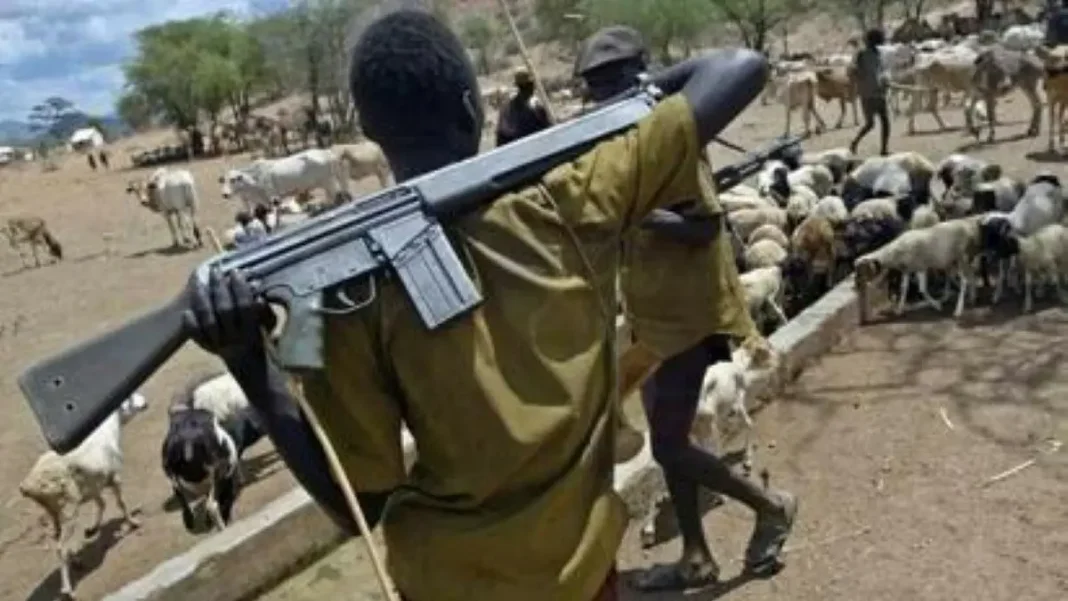Makurdi, Benue State – As fresh waves of violence ripple across Benue and Plateau States, resurfacing testimonies from late Terwase Akwaza, popularly known as Ghana, have reignited concerns about the true motives behind persistent attacks on farming communities in Nigeria’s Middle Belt.
Before his controversial killing in September 2020 by Nigerian security forces, Ghana—once a notorious warlord and militia leader in Benue—made startling confessions. Having embraced a state-backed amnesty program, he alleged that the conflict was not merely criminal or tribal—but a deliberate and well-funded plot to displace indigenous populations and seize ancestral lands.


“The attacks are planned. Extra funds are given to bribe security operatives to look away,” Ghana reportedly said in a closed-door interview before his death.
Though dismissed by many at the time, his words now echo hauntingly as the region reels from ongoing massacres, community displacements, and accusations of state complicity.
A Troubled Legacy: Who Was Ghana?
Terwase Akwaza, once a wanted criminal and militia commander, later became a controversial symbol of repentance when the Benue State government granted him amnesty in 2015. For a brief period, he worked with the government to stabilize volatile communities, surrender arms, and broker peace.
But by 2016, the alliance soured. Ghana was declared wanted again and accused of masterminding attacks and extortion. In 2020, he was killed in a military operation while allegedly en route to surrender again under a renewed peace arrangement. The circumstances of his death sparked public outcry, especially after reports emerged that he had been lured into ambush following negotiations with government officials.
His death silenced a man who, for better or worse, understood the battlefield, and whose earlier revelations are now proving prophetic.
A Pattern of Blood and Silence
According to Global Rights Nigeria, over 9,000 lives have been lost in land-related violence in Nigeria’s

 dle Belt between 2013 and 2023. Benue and Plateau top the list. Despite official narratives blaming “herder-farmer clashes,” local leaders insist the violence is coordinated and strategic.
dle Belt between 2013 and 2023. Benue and Plateau top the list. Despite official narratives blaming “herder-farmer clashes,” local leaders insist the violence is coordinated and strategic.
In Guma, Logo, and Agatu LGAs of Benue, villages have been repeatedly attacked since 2016.
In Bokkos, Barkin Ladi, and Riyom LGAs of Plateau, coordinated raids have displaced thousands, even amid military presence.
NEMA reports that over 2 million people are currently internally displaced across the region due to these attacks.
Community testimonies and independent investigations suggest that the attackers are often heavily armed, well-coordinated, and rarely apprehended, leading to suspicions of collusion or deliberate inaction by security agents.
> “We have video evidence and eyewitnesses. Security forces stationed nearby do nothing when attacks begin,” says Hon. Emmanuel Udenyi, a youth leader from Gwer West, Benue.
Who Are the Real Perpetrators?
Contrary to the oversimplified “Fulani herdsmen” label, insiders and analysts argue that the attackers include foreign mercenaries, local collaborators, and criminal syndicates disguised under ethno-religious identity.
> “Majority of the assailants may not even be Fulanis. They’re bandits with a mission: occupy land, erase history, and reshape demographics,” says Dr. Rebecca Adagbo, conflict researcher at the University of Jos.
This theory aligns with Ghana’s earlier claims that the violence was not spontaneous but strategic—a form of modern colonization cloaked in chaos.
Government Accountability and Public Distrust
The failure of successive administrations to bring an end to the bloodshed, combined with slow investigations and unprosecuted arrests, has led to growing mistrust in government.
“You cannot preach unity while standing on mass graves,” said Cardinal John Onaiyekan, during a peace conference in 2023.

Despite repeated military operations like Operation Whirl Stroke and Safe Haven, there are concerns that deep political interests and land speculation are fueling the violence. In many areas, survivors return to find ancestral farmlands occupied, and no official explanation provided.
The Way Forward: Justice, Not Just Troops
Experts advocate for:
Independent truth commissions to investigate displacement and alleged collusion.
Land restitution and protection laws to prevent illegal occupation.
Stronger international pressure on the Nigerian government to investigate mass killings transparently.
Community policing and local defense structures rooted in constitutional backing.
Conclusion: Ghana’s Ghost Still Speaks
Late Ghana may have been a flawed figure, but his final warnings are sounding clearer than ever. The violence in Benue and Plateau is not random—it is calculated. It is not lawlessness—it is law ignored. And until Nigeria chooses justice over politics, the graves will continue to grow.
History must not repeat itself with silence.
Headlinenews.news Special Investigative Report.
Visit: www.headlinenews.news for updates.




